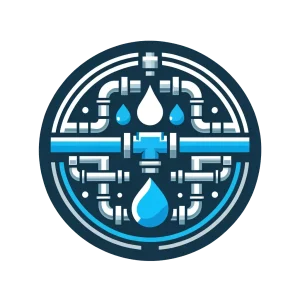A Comprehensive Guide to DIY Drain Maintenance in Toronto
Dealing with a clogged drain can be a stressful and smelly experience. However, before you reach for the phone to call a plumber, consider these easy DIY solutions for fixing your drain problems. This guide provides useful tips for maintaining your drains and offers practical advice on how to tackle common drain issues in Toronto.
Understanding Clogged Drains
Understanding clogged drains is essential for maintaining smooth water flow in your home. Clogs often occur due to everyday household activities, and recognizing the root causes can help you address them effectively. One of the most common culprits is hair and debris, which can accumulate over time in bathroom drains. Hair from washing or shaving sticks to the inner walls of pipes, creating a tangled mass that traps other particles like soap residue and dirt. This buildup restricts water flow, leading to slow draining or complete blockages.
Another frequent cause of clogged drains is grease and oil from the kitchen. When hot grease is poured down sinks, it cools and hardens inside pipes, forming a sticky layer that traps food particles and other debris. Over time, this creates a substantial blockage that can be challenging to remove without professional assistance or specialized tools. Soap scum is another sneaky contributor to clogs, as it builds up over time and combines with mineral deposits in hard water to create a stubborn residue.
To prevent these issues, regular drain maintenance is key. Incorporating clogged drain solutions into your routine can save you from costly repairs and headaches. Simple diy drain fix methods, like using baking soda and vinegar or boiling water, can help dissolve buildup before it becomes a major problem. Additionally, installing drain screens can trap hair and debris at the surface, preventing them from entering the pipes in the first place. By staying proactive with these drain maintenance tips, you can keep your drains running smoothly and avoid potential backups.
Common Causes of Clogs
Clogged drains are often the result of overlooked maintenance or everyday habits that gradually lead to blockages. Understanding the common causes of clogs is essential for implementing effective and preventing future issues. One of the most frequent culprits is hair, particularly in bathroom sinks and showers, which can tangle with soap residue and debris over time. Similarly, food particles, grease, and oil in kitchen drains are major contributors to blockages, as they solidify and trap other waste materials.
Another common cause is mineral buildup, especially in areas with hard water. often include addressing this issue by using descaling agents or vinegar-based solutions to dissolve mineral deposits before they become problematic. Additionally, flushing foreign objects like toys, wipes, or feminine hygiene products down the drain can lead to severe clogs, particularly in sewer lines.
Tree roots are another unexpected cause of clogged drains, as they grow into pipes seeking moisture and nutrients. This is especially prevalent in older drainage systems. Insufficient water flow due to narrow pipes or improper venting can also contribute to slow draining and eventual blockages.
To prevent these issues, regular routines are crucial. Simple practices like running hot water after cooking or using drain screens to catch debris can significantly reduce the risk of clogs. For homeowners in Toronto, where winters are harsh, ensuring pipes are insulated is also a key preventive measure. By staying vigilant and addressing early signs of slow drainage, you can avoid costly repairs and maintain smooth-running drains year-round.
DIY Drain Cleaning Methods
Provide a step-by-step guide on how to use baking soda and vinegar, a plunger, a drain snake, and a wet/dry vacuum to unclog drains.
Preventing Clogs
Offer practical tips for preventing clogs in the first place, such as using strainers, monitoring what goes down the drain, and scheduling regular maintenance.
When to Call a Professional
When dealing with , knowing when to switch from DIY fixes to professional help is crucial. While basic methods like boiling water or baking soda and vinegar can resolve minor blockages, there are situations where calling a plumber in Toronto is the safer and more effective option. For instance, if you’ve tried multiple techniques without success, it’s likely that the clog has reached a point where professional tools and expertise are necessary. Professional plumbers use advanced equipment like camera inspections to locate hidden blockages or snake augers to clear debris from deeper within your pipes.
Another key indicator is when you notice severe signs of a clogged drain, such as gurgling noises in multiple sinks, slow drainage across the entire system, or a persistent sewage smell. These symptoms often point to more serious issues, like tree roots invading sewer lines or collapsed pipes, which are beyond the scope of typical . Attempting DIY fixes in these cases can worsen the problem, potentially leading to costly repairs or even health hazards.
Additionally, if your home has older plumbing systems or you’ve recently experienced significant water damage, relying on professional expertise ensures long-term solutions rather than temporary fixes. Plumbers can also identify and address underlying issues that may not be immediately apparent, such as improper venting or insufficient pipe sizing. By recognizing when to call a professional, you not only save time and effort but also protect your home’s drainage system from further damage. Remember, prevention is key, but knowing when to seek help ensures that any are both effective and sustainable in the long run.
Eco-Friendly Drain Solutions
Highlight eco-friendly alternatives for drain cleaning solutions and products that are safe for the environment and your pipes.
Conclusion: Keep Your Drains Running Smoothly
Summarize the key takeaways from this guide, emphasizing the importance of regular maintenance and proper usage to prevent clogs and keep your drains running smoothly. Don’t let a clogged drain disrupt your day; arm yourself with these DIY solutions today!
Conclusions
By understanding what causes clogs, being proactive in preventing them, and knowing how to clean your drains effectively, you can save time, money, and the headache of a clogged drain. Remember that regular maintenance is key to keeping your drains running smoothly and extending their lifespan. Don’t let a clogged drain disrupt your day; arm yourself with these DIY solutions today!

